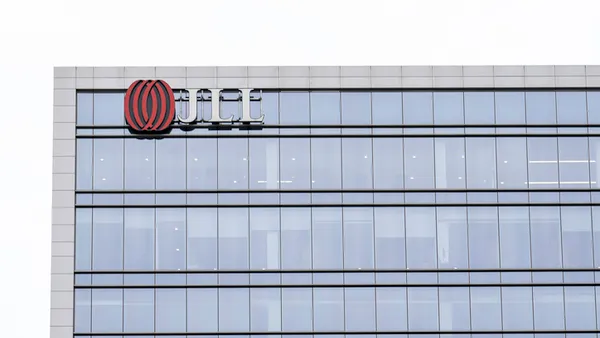Dive Brief:
- Lease renewals will increasingly hinge on decarbonization commitments, with the shortage of low carbon spaces expected to intensify beyond 2024, according to JLL’s 2024 global real estate outlook.
- Seventy-seven percent of lease renewals from the top 100 occupiers in eight U.S. markets surveyed by JLL will be tied to carbon commitments, the firm said. With 5.3 million square meters, or 75% of total demand for low-carbon offices, expected to be unmet by 2030, tenants should focus on measuring a building’s operational environmental performance, the outlook says.
- The real estate services firm recommends that organizations seize the opportunity to leverage technology and data to immediately implement decarbonization and resilience strategies, rather than waiting until next year.
Dive Insight:
In an oversupplied office market where occupiers face stiff competition in high-demand segments, organizations should prioritize investments in technologies that facilitate data-driven decision-making, JLL says. Technologies enable decision-makers to optimize their real estate portfolios as companies move to more centrally located and higher-quality buildings with features, amenities and ESG credentials that align with their business priorities; however, only one third of companies globally have the occupancy and workplace sensors essential for supporting these decisions, JLL says.
Although sustainability has emerged as the “the top budget item for occupiers’ technology spend,” according to the outlook, 80% of global occupiers express dissatisfaction with the value they have derived from their technologies, JLL’s forecast states. The outlook also predicts that generative AI and large language models will “supercharge CRE operations in 2024,” playing a more crucial role in supporting sustainability targets, expanding data sources, driving standardization and providing valuable portfolio insights.
The outlook also urged tenants to think beyond green building credentials, noting that these are typically based on design and construction, to instead focus on their buildings’ environmental performance indicators like energy intensity and greenhouse gas emissions.
Overall, only 23% of executives currently have contingency plans in place to address climate-related disruptions over the next 12 to 18 months, the report says, citing a PwC Pulse survey conducted last year. Companies should thus identify sites that are most prone to climate risk and adopt short-term resiliency measures that firms must then migrate into longer-term decarbonization plans tailored to each location, JLL says, pointing to the potential for climate-progressive regulations to drive the pace of retrofits in cities like New York.
AI and data capture will be crucial to achieving sustainability goals and shaping an overarching commercial real estate strategy as organizations develop strategies to implement sustainability initiatives, the report says.
As organizations finalize their budget priorities for 2024, some will concentrate on sustainability or technology, while others will adopt a more holistic approach. Both strategies can yield returns on investment, but there will be a synergistic effect for those who invest in a well-rounded program, the firm says in its outlook. Allocating budgets strategically across a spectrum of initiatives that can benefit people, places, processes and technologies, JLL says, is essential to maximizing ROI.














